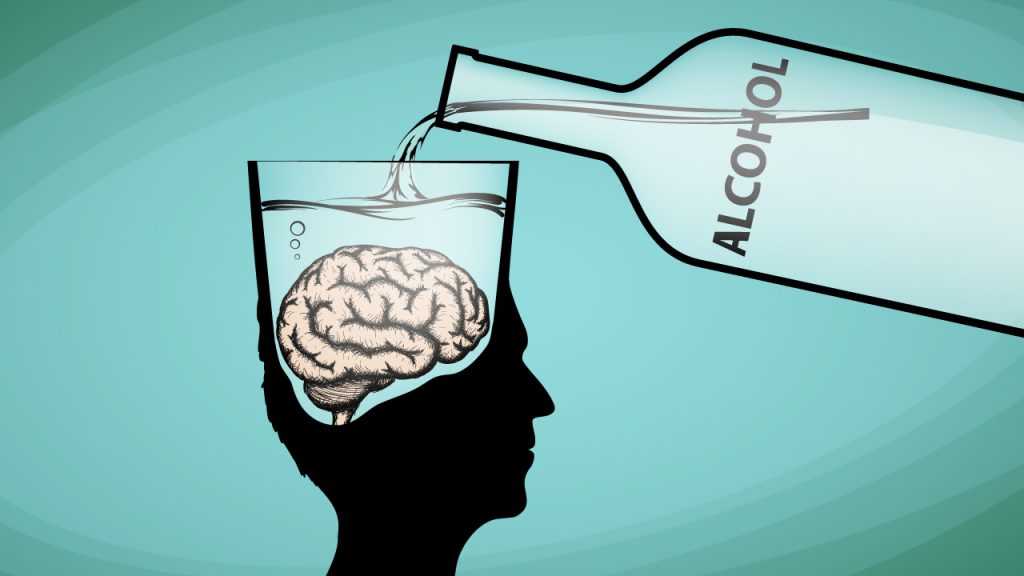A recent study published in Neurology has revealed a significant association between heavy alcohol consumption and increased risk of brain damage. Conducted by researchers from Brazil and the University of California, San Francisco, the study analyzed autopsy data from 1,781 individuals, uncovering that heavy and former heavy drinkers exhibited up to a 133% higher likelihood of brain lesions associated with conditions like dementia and Alzheimer’s disease compared to non-drinkers.

Study Overview
The research focused on individuals with an average age of 75 at the time of death. Information regarding their alcohol consumption in the three months preceding death was obtained through detailed questionnaires administered to their next of kin. The study assessed various factors, including brain mass, cognitive abilities, and the presence of vascular brain lesions.
Key Findings
Increased Risk of Brain Lesions: Heavy drinkers had a 133% greater risk of developing vascular brain lesions compared to non-drinkers. Former heavy drinkers also exhibited an 89% higher risk, while moderate drinkers had a 60% increased risk.
- Cognitive Impairment: The study found that heavy and former heavy drinkers were more likely to have cognitive impairments, although no direct link was established between drinking and brain mass or cognitive scores. Researchers suggest that heavy drinkers may have died before dementia symptoms became apparent .
- Shortened Lifespan: Heavy drinkers were found to have an average lifespan 13 years shorter than non-drinkers .
Implications
These findings underscore the potential long-term dangers of heavy alcohol consumption on brain health. The presence of vascular brain lesions is associated with memory and thinking problems, highlighting the importance of monitoring alcohol intake. Experts advise that individuals assess their drinking habits and consider reducing alcohol consumption to mitigate these risks.

Recommendations
- Moderation: The U.S. Dietary Guidelines recommend that men limit alcohol intake to two drinks per day and women to one drink per day to reduce health risks.
- Healthy Lifestyle: Incorporating a nutritious diet, regular exercise, and adequate sleep can support overall brain health.
- Seek Support: If alcohol consumption is affecting your health or daily life, consult healthcare professionals or support organizations for assistance.
Understanding the impact of alcohol on brain health is crucial for making informed decisions about consumption. This study adds to the growing body of evidence linking heavy drinking to serious health consequences, emphasizing the need for awareness and preventive measures.

















